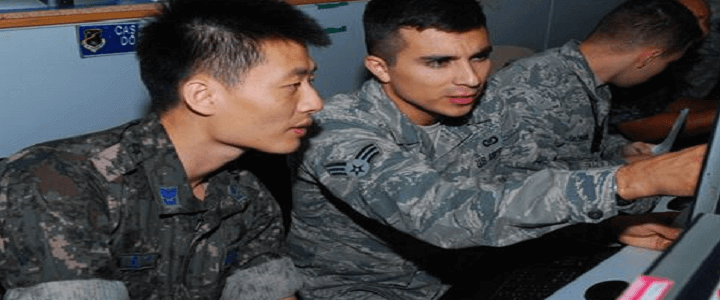President Donald Trump and North Korean Chairman Kim Jong-un are already creating unity. Conservatives, even some who were not part of the “Never Trump” movement, and liberal members of the “resistance” have joined together in a chorus of condemnation over Trump’s embrace of the Northern strongman. While it is easy to understand their angst, it is also, when you step back and analyze the situation, easy to see why this case has to be different.
Henry Kissinger, national security adviser to President Richard Nixon and secretary of state to Nixon and President Gerald Ford, was perhaps the foremost American practitioner of what is called “realpolitik,” a foreign policy that stresses real possibilities over ideological fantasies. In his book A World Restored, Kissinger wrote that “The true test of a statesman, then, is his ability to recognize the real relationship of forces and to make this knowledge serve his ends.” In his dealings with the Democratic People’s Republic of Korea, Trump is practicing genuine realpolitik.
“Choices between the bad and the worse”
In a perfect world, the U.S. could avoid engaging Korea directly, keeping it militarily contained, while rendering it diplomatically and financially isolated. The DPRK’s development of nuclear weapons, or perhaps more accurately, the U.S. failure to prevent the DPRK’s development of nuclear weapons, combined with its rapid advances in its missile technology, has made that course of action untenable.
So Trump met with Kim, and has invited him to the White House. Sure, that’s “legitimizing” a dictator. But consider the options. As Georgetown University’s Dr. Victor Cha, a former director of Asian affairs on President George W. Bush’s National Security Council wrote in a New York Times op-ed, “in the case of North Korea, there are never good policy options — there are only choices between the bad and the worse.”
Many of the same people complaining about Trump’s embrace of Kim were, not long ago, complaining loudly and long that Trump was “driving the country to the brink of nuclear war.” Now that his “maximum pressure” policy has brought Korea to the table (for now), those same people are screaming that he’s the reincarnation of Neville Chamberlain.
Most of us agree on two points: that “abysmal” does not begin to describe North Korea’s human rights record, and that we cannot tolerate a nuclear-armed North Korea. Where we diverge is on how best to approach these issues. For my money, the nuclear issue has a much greater potential impact on the rest of the world than do Korean gulags. As much as I champion the individual’s natural right to liberty… first things first. The Heritage Foundation’s Dr. James J. Carafano put it succinctly: “In statecraft human rights are always on the menu, that doesn’t mean they are always the first course.”
The Art of the Deal
There are four instruments of national power: diplomatic, informational, military, and economic. Military might is effective to a point, but should only be applied in the case of a failure of the other three instruments, or threatened to make a diplomatic solution acceptable. War, as Clausewitz said, is “the continuation of policy with other means.” It does not stand apart from policy; it is what happens when other approaches fail. So we must negotiate.
Any successful negotiation requires an acknowledgement that beneath the bluster lie real concerns and legitimate grievances. So Trump met with Kim, and acknowledged that some of his grievances have merit. We can maintain that our military exercises conducted with our coalition partners are merely a rehearsal for a North Korean invasion, but we can also admit that from north of the 38th Parallel, they look menacing. Perceptions matter.
So Trump agreed to suspend them, at least for now. American and Korean readiness will not erode overnight without these massive wargames. Our individual units will still conduct their own training as they always have. And just like North Korea still has the means to restart its nuclear program if it were to decide to do so, so too can we restart exercises any time it seems right.
A spokesman for U.S. Forces Korea, Lt. Col. Jennifer Lovett, told Military Times that these exercises “take months to plan but they happen every year so the logistics have been ironed out over the years and it’s easy enough to flex as needed.” One year without Ulchi-Freedom Guardian will not make or break the ability of the Department of Defense to respond adequately to a DPRK invasion of the ROK.
The Trump-Kim summit was historic. It bears repeating, however, that it is just the first step in a long process. While the joint statement was admittedly weak and vague, it is not the final deal. I am now almost completely convinced we’ll get there.



